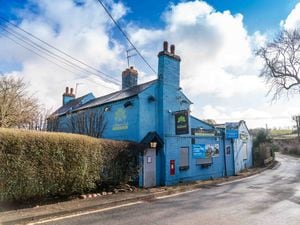Telford picture focus: Inside the biggest recycling centre of its kind in Europe
Anthony Sant picks up a handful of fine, shrapnel-like material from a conveyor belt, and clutches it in the palm of his hand.

"It is quite warm to touch," says the marketing director of AO Recycling. Which is not really surprising, given that a few minutes ago this would have been a refrigerator.
We're at AO's mammoth recycling plant in Telford, which is the largest centre for recycling old white goods in the UK, and probably Europe.
"We process about 100 fridges every hour," says Anthony's brother Robert, who is managing director of AO Recycling.
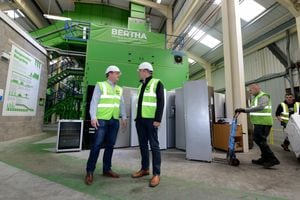
The process takes about 12 minutes from start to finish; old fridges, freezers, washing machines and tumble dryers enter the plant at Halesfield Industrial Estate at one end, and minutes later come out the other end as carefully sorted lumps and powders which are taken away to be used again.
The plastics are used to make seed trays for Dutch flower growers, the insulation foam is used as fuel to generate electricity. The metals are sorted into lumps which can be re-used again, and may potentially end up being used to make new fridges and washing machines.
See also:
"Our aim is that nothing goes to landfill," says Robert. "At the moment you can't do anything else with the gases. We treat them so they can be safely disposed of, but everything else is recycled."
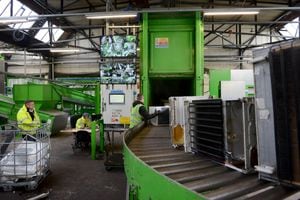
The scale of the operation is breathtaking. The plant, which was officially opened last month by environment minister Therese Coffey, will process more than 700,000 appliances a year, or just over 20 per cent of all white goods scrapped every year. The majority are appliances discarded by AO's customers, but the plant also has contracts with other organisations, including Telford& Wrekin Council.
"If you take your old fridge to a council operated disposal site in Telford, they will end up here," says Robert.
The journey starts in a giant loading bay, where the appliances are graded according to their condition. The best ones are refurbished with the help of apprentices from local colleges, and offered for sale in a nearby outlet shop.
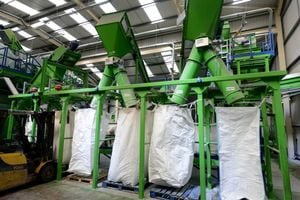
"We're very much a throwaway society," says Anthony. "Very often people throw things away when they're still working, and these are reconditioned for resale. We process around about 1,000 of these every week."
Other appliances, which are not good enough for resale, can be broken up for spare parts. And then the others, the ones which have no intrinsic value, will meet their end at the hands of Bertha.
Bertha is the name given to the 80-ton machine which devours old fridges like a paper shredder, which is able to devour 100 domestic appliances in the space of an hour. But before their date with Bertha, the oil and dangerous fluids have to be drained from the appliances, and the motors removed.
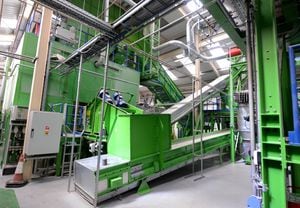
Once this has been done, they are sent on a conveyor belt to the machine that turns them to dust.
Bertha is a truly stunning piece of equipment; it can destroy up to 16 appliances in the space of about six minutes, slicing them up with huge, heavy chains made from 2in thick metal.
"We show some of the fridge manufacturers around, and they find it a bit disconcerting," says Robert.
"They find it a bit difficult that we are so passionate about destroying the products they love."
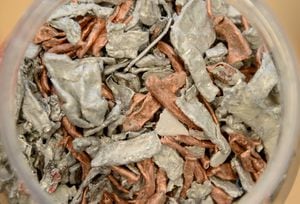
Bertha, which is about the height of a three-storey house, processes the appliances inside an airtight container. As her massive chains create a vortex which smashes the machines into tiny pieces, the potentially harmful gases are released.
"That was a big one," remarks Anthony as the platform at the top of the machine briefly shakes from the pressure.
Nitrogen is pumped into the chamber, which has the double benefit of not only preventing an explosion, but also turning harmful gases such as CFC in older fridges, and pentane in newer ones, into liquid form. These are then siphoned off and sent away to an authorised disposal company.
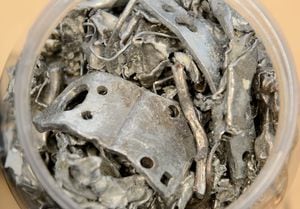
By the time Bertha has done her damage, a mixture of plastic, metal and polyurethane foam comes on a conveyor through the other end ready to be sorted. A sieve-like filter removes the foam granules, which have by now been reduced to a flour-like texture. A giant electromagnet draws out the steel, and by the end of the process the fridge has been separated into lumps of scrap steel, copper and aluminium, shreds of plastic ready to be melted down, and a polyurethane powder.
The plant, which began operating a year ago, employs 200 people, and Anthony says Telford's location at the heart of the motorway network was crucial to the decision to base the plant there. He hopes it will become the template for similar plants in other parts of the country.
Washing machines, dishwashers and other large appliances are dispatched in a similar fashion, although these do not contain the harmful gases, meaning the process is a little easier and quicker.
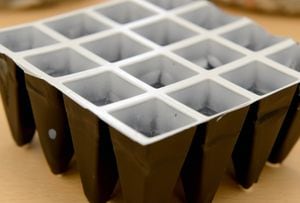
While the speed and efficiency of the operation is a sight to behold, Anthony Sant is keen to stress that it is a very serious business.
He points out the planet would be facing disaster were it not for a worldwide ban on CFC gases in the mid 1980s, and says there are still many old appliances about which contain these materials.
"In the past, people only recycled things when there was money to be made from it," he says.
"Now we are doing it because it is what our customers want.
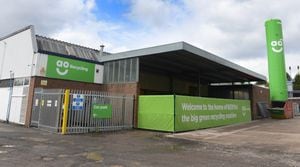
"David Attenborough's Blue Planet has made people think differently, plastic is a big issue people are talking about."
He produces a photograph of a rubbish dump in Lagos, Nigeria, where scrap appliances from the UK are being burned, releasing toxic fumes into the atmosphere.
He asks: "Is a responsible person going to leave an old fridge at the end of the road hoping somebody will take it away?"




